The Central Valley
Visalia, Ducor, Delano, Porterville
Pictured: Ruth Martinez on the 40 Acres site
Why the Central Valley?
The Central Valley, is a region about 20,000 square miles in California’s interior, and is widely known for its agricultural production. Farm workers in this region endure severe and dangerous working conditions including direct exposure to pesticides, heat stroke, diabetes, respiratory disease such as COVID-19, and other chronic conditions.
It is an area in which a large population of California’s Latinx community live, yet this population still faces many barriers to healthcare access. This in turn makes the population vulnerable to many illnesses and puts the farm worker community at risk.
What we did
Campesinas Unidas del Valle de San Joaquin is a non-profit organization born from the collective aspirations of farm-working women who share a common goal: to empower and uplift women. By offering educational resources, home-based workshops, and vital support within their local community, they actively equip women with the knowledge and skills essential for leading healthy and empowered lives. Campesinas Unidas del Valle de San Joaquin takes a leading role in advancing gender equality while fostering a stronger, more resilient, and informed community of female agricultural workers.
The Central Valley is also the site of diverse social movements, most well-known is the United Farm Workers (UFW) movement for the 1966 Grape Strike that led to historic advancements in labor conditions as well as made possible the establishment of 40 acres, a community health clinic, and Radio Campesina. This movement opened the way for many other organizations dedicated to farm worker rights and needs such as Central Valley Empowerment Alliance (CVEA), Lideres Campesinas, and Campesinas Unidas del Valle de San Joaquin, and others.
Our research team has been working in California’s Central Valley interviewing and highlighting the work of leaders that have fought for improved labor and health rights, continuing the important work of Cesar Chavez and the UFW.
In this region, we have interviewed individuals who participated in the UFW strike–activists that have continued to work to create better opportunities for the next generation. Additionally, we interviewed people who are a part of the next generation of Latinx activities, who continue the fight for equality for Latinx communities.
A key theme throughout all interviews is that when people in the Latinx community are not able to afford to receive care and when they do go they are often put at the end of the list. They experience wait times followed by a meeting with physicians who don't seem to care to understand their issues.
To start we interviewed Roberto ‘El Capitan’ Bustos, a UFW captain who helped organize the historic ‘March to Sacramento’ in 1996–a march that started with 77 participants grew to over 1500 by the time they reached the capitol. Bustos has dedicated over 23 years to serving the farmworker community, advocating for equal access to health care and HIV and STD prevention amongst farmworkers. Partly, his motivation for this work was generated by the feeling he never felt welcomed in a healthcare facility and this had stopped him from getting help when he needed it. Drawing on personal experience, he shared that going to the doctor's office and having to wait for countless hours left him feeling that “no one working there wanted to bother to help”. As a farmworker himself, he remembers that that no matter what he or the other farm workers were suffering from they weren't allowed to stop working. Nevertheless, they didn't make enough money to afford healthcare and as a consequence had to continue to work even on their sickest days. His anecdotes reflect the reality, historically and now, of the struggle that farmworkers face in both health access but more significantly more decent and just care.
Our research team also interviewed Yolanda Chacon-Sernas, a member of the next generation of farmworker advocates who learned from her mother during the UFW strike to advocate for the right of her people. In turn, Yolanda has become a healthcare advocate for farmworkers by sitting on the board of Omni Family and fighting for equitable healthcare for farmworkers. Chacon-Serna also reflected on how her advocacy work has also played an important role in her own family life. Yolanda described how doctors refused to listen to her mother’s symptoms, eventually misdiagnosing their mother with schizophrenia. This misdiagnosis that had significant consequences and would eventually lead to the steady decline of Yolanda’s mother’s health. Much later, Yoland’s sister began to show similar symptoms that her mother hadand was eventually diagnosed with leukodystrophy, not schizophrenia. This correct diagnosis was reached only after Yolanda advocated on behalf of her sister and challenging the medical team assigned to her sister. Yolanda described that she had to advocate for additional testing, and was forced to to take her sister to see doctors in distant cities because access to quality healthcare was limited in the Central Valley.
In Ducor, undergraduate research assistant Anai Ramos lead an interview with her great aunt, Ruth Martinez, a retired nurse and former UFW volunteer for countless marches Ruth recoutned that because the marches would last for weeks and sometimes months, workers would fall victim to nasty blisters, and constant illness due to the intense physical effort and changing climates. As the nurse, she would try her best to wrap people's injuries and boost immune systems but at the end of the day, she did not have enough resources to help everyone.
Ruth also reflected on her time working at 40 Acres–a UFW clinic located in Delano, CA that offered health, banking, and legal advice to farmworkers. During her time there, she worked to provide free healthcare services to farmworkers. Ruth explained that on any given day there would be 50-100 people whom had travelled from all over the state to receive their health services. There was simply nowhere else for these workers to receive health care they could afford.
Lupe Martinez
Campesinas Unidas del Valle de San Joaquin
Ruth giving our research a team a tour of 40 Acres
Dr. Mantini-Briggs with Lupe Martinez. Lupe is founder of Delano Guardians, an organization focused on environmental justice, and sits on the board of directors for the Center for Race, Poverty, Environment (CRPE).
Sister Organizations
Central Valley Empowerment Alliance (CVEA)
Established in 2019, Central Valley Empowerment Alliance (CVEA) is a grassroots community development organizing group that aims to address economic and educational disparities, advocate for affordable housing, and empower underserved communities in the Central Valley. They actively empower youth and rural populations to become leaders, advocates, and catalysts for change. CVEA’s accomplishments range from civic engagement initiatives to voter registration drives. CVEA is a beacon of hope for a more just and empowered future.
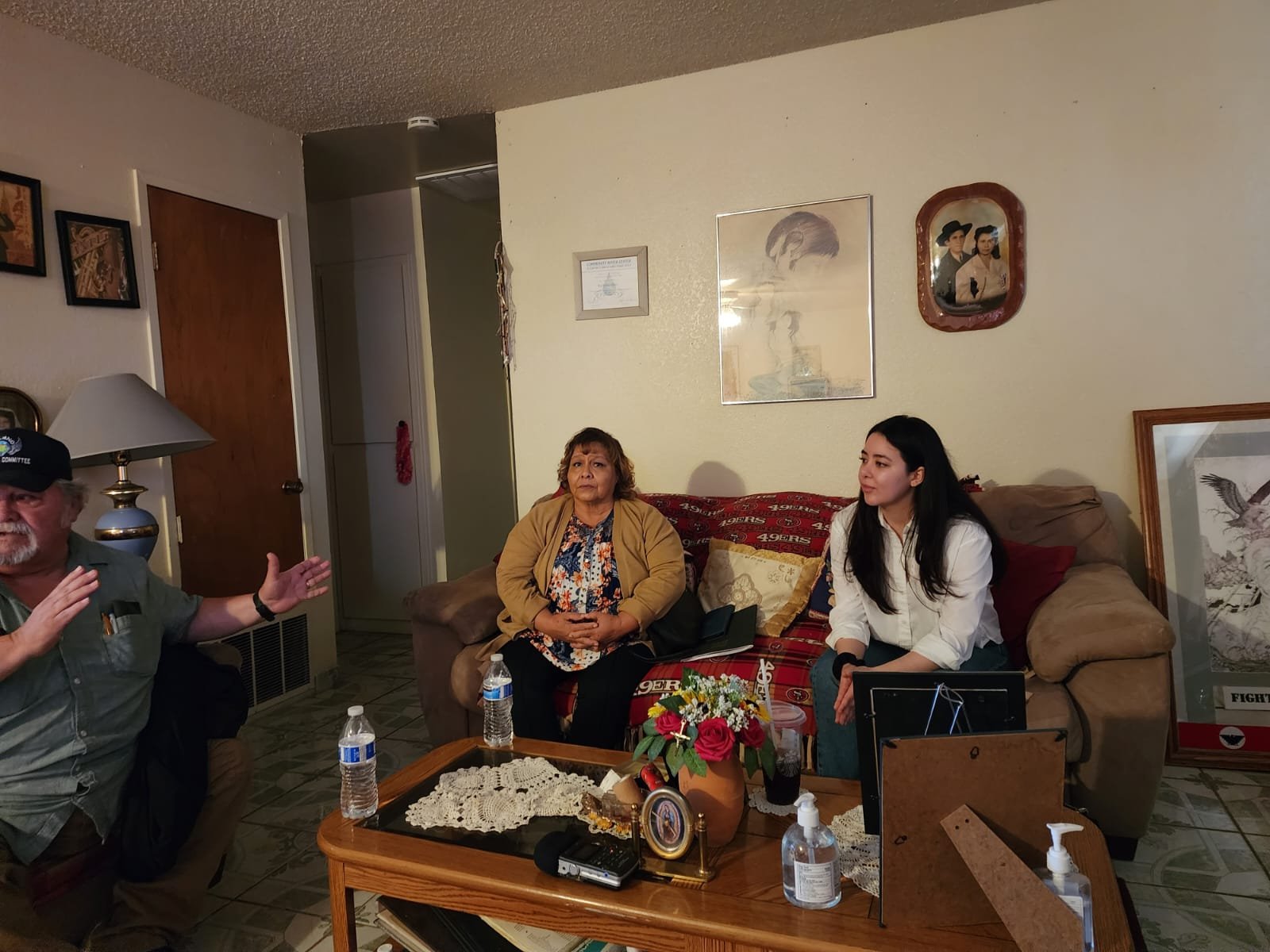





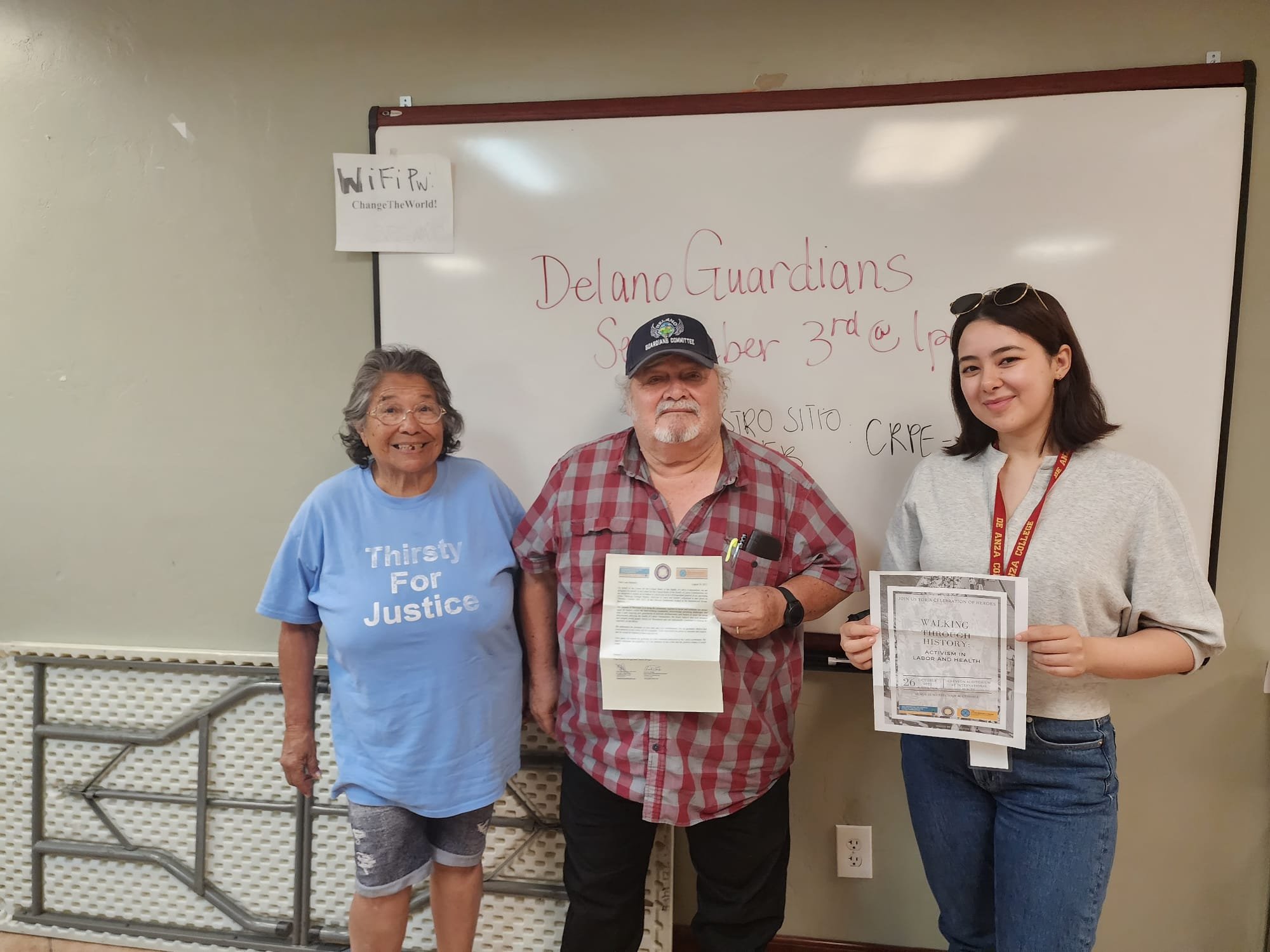
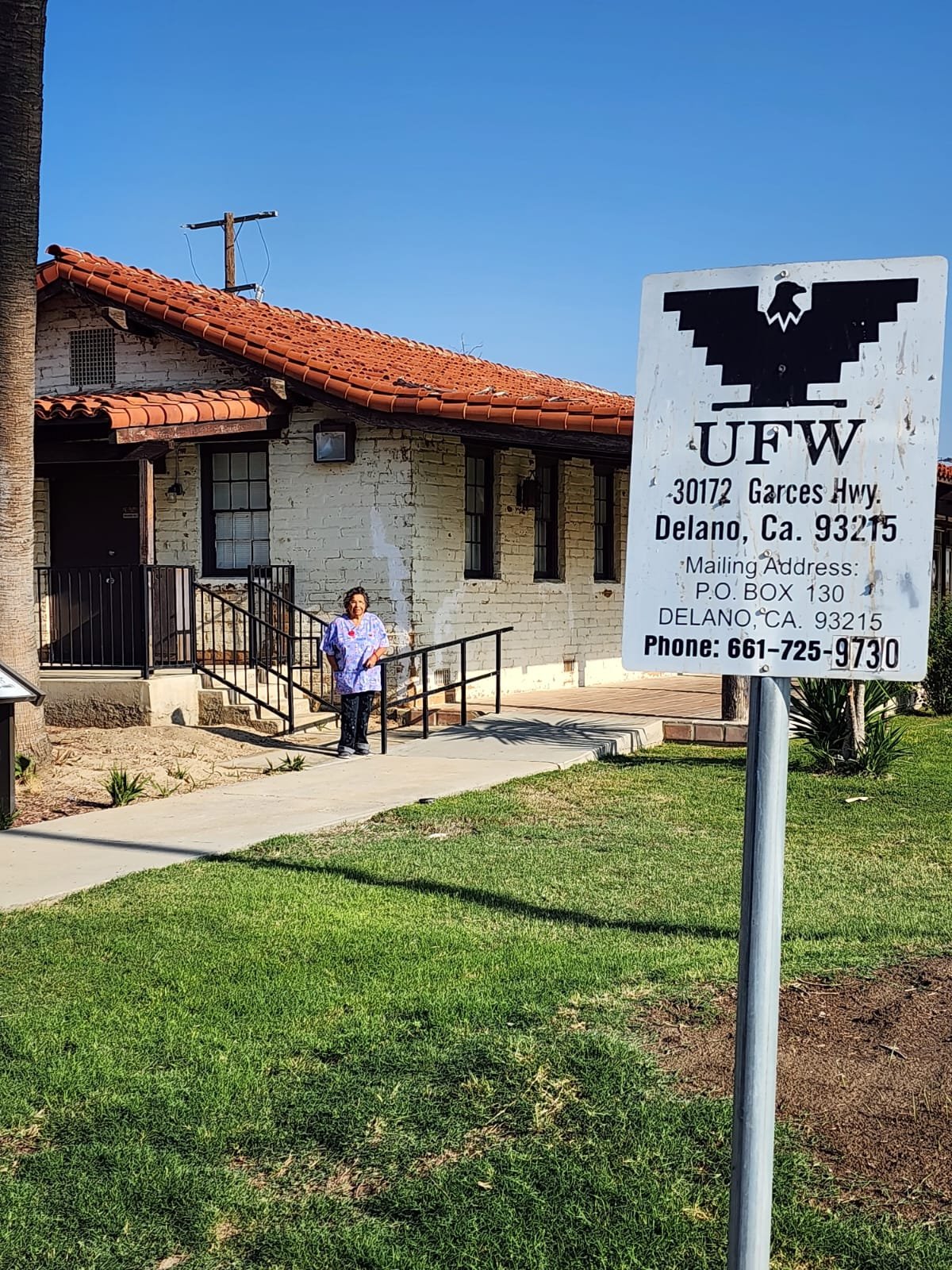
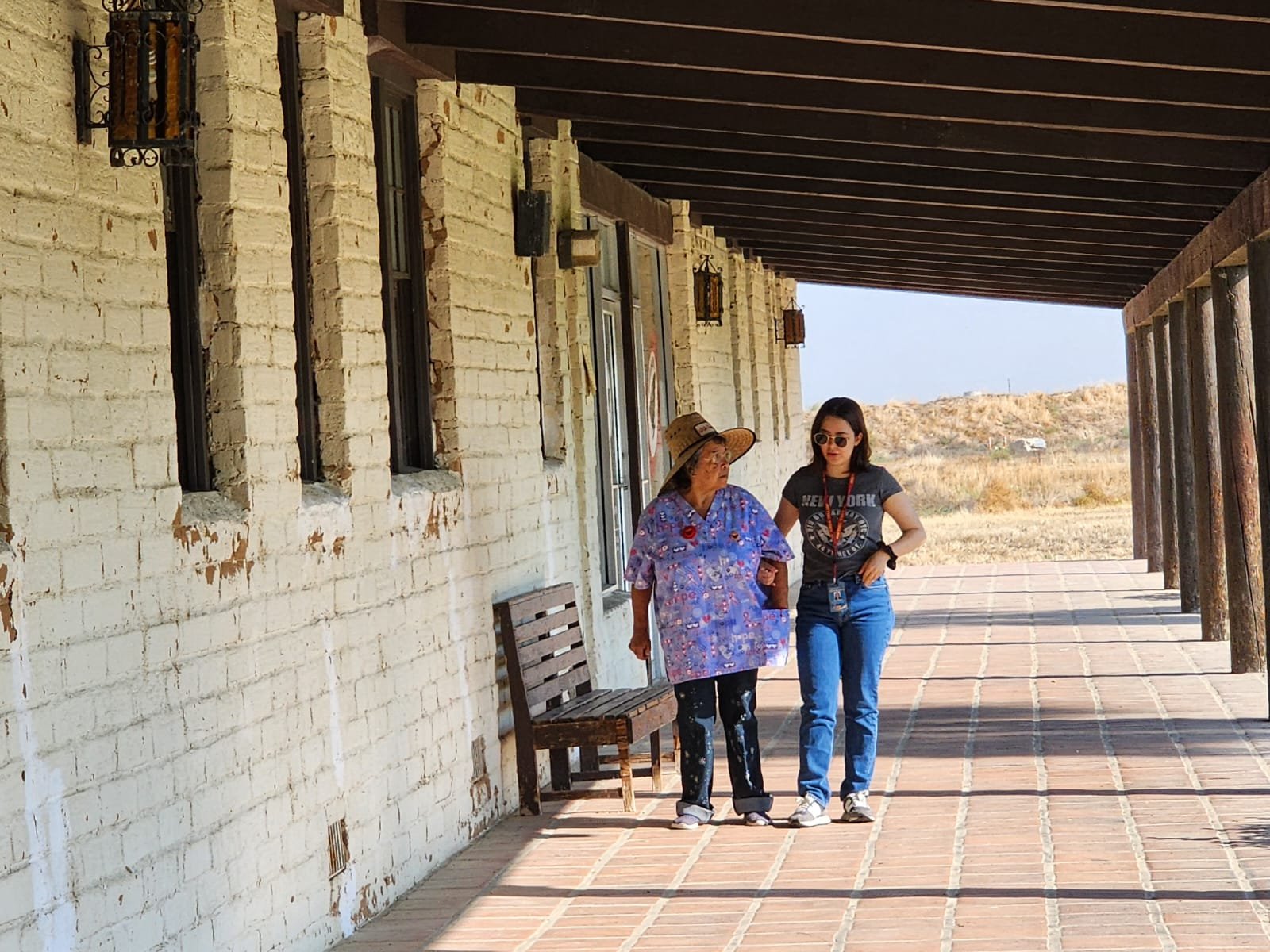
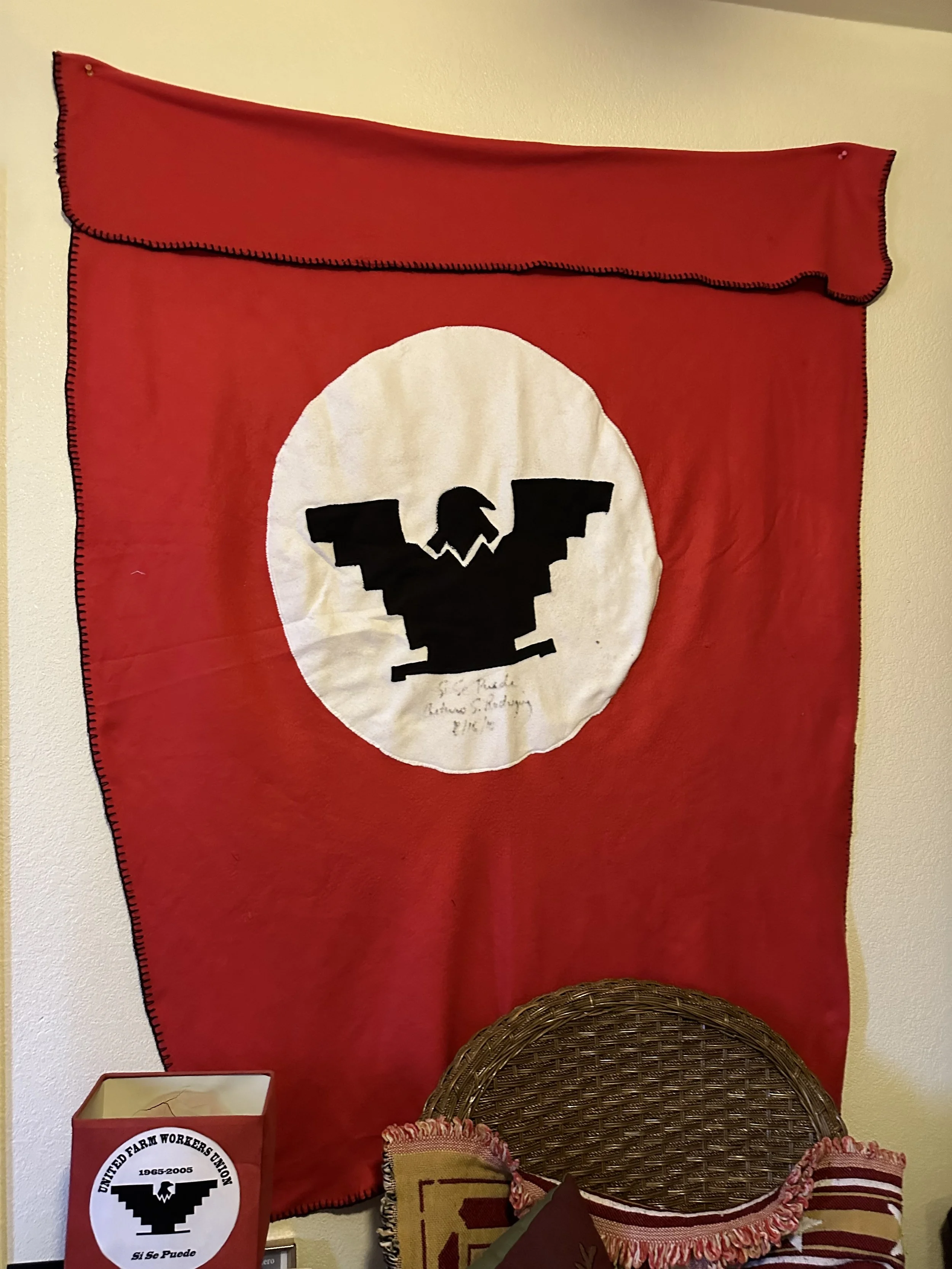





Credits
Written by undergraduate research assistant: Sofia Perez
Field work carried out by undergraduate research assistant: Anai Ramos
Principal Investigator: Dr. Clara Mantini-Briggs





